Notre site dispose désormais d'un mode éco. N'hésitez pas à l'essayer !
Discover how the Paris 2024 Olympics are revolutionizing sports organization through AI and Big Data. Explore the technological innovations transforming logistics, spectator experience, security, and sustainability of this global event.
The opening ceremony of the Paris 2024 Olympics dazzled the world with its creativity and boldness. It succeeded in putting the spotlight back on the Olympics and the city of Paris. The organizers orchestrated a spectacle that was not only a celebration of the sporting spirit but also a true cultural and technological revolution. This unprecedented choice illustrated Paris 2024's desire to reinvent itself and set new milestones in Olympic history.
This spectacular ceremony set the tone for the weeks to come, highlighting the organizers' commitment to innovation and surprise. It showed how these Games are determined to mark a decisive turning point, not only from a cultural standpoint but also from a technological one.
On the technological front, the Paris 2024 Olympics truly stand out. The massive and innovative use of artificial intelligence (AI) and Big Data transforms every aspect of the event, from logistics to security, spectator experience, and environmental sustainability. In this article, we will explore how these technologies are being implemented to create a truly avant-garde and futuristic edition of the Games.
Organizing the Olympics involves complex and detailed logistical planning to ensure smooth operations and movements. At Paris 2024, AI and Big Data play a crucial role in optimizing logistics and transportation, guaranteeing a smooth and secure experience for athletes, spectators, and organizers.
Managing traffic and crowd flow is a major challenge for any large sporting event. For the 2024 Olympics, advanced AI-based technologies are used to predict and manage these flows efficiently. Real-time surveillance and analysis systems developed by Intel monitor crowd movements and predict traffic peaks.
In particular, Intel is leveraging the opportunity to test and deploy the concept of “digital twinning,” a technology that allows the simulation and optimization of movements around Olympic venues. These digital models help foresee infrastructure needs and plan necessary interventions to ensure smooth and secure circulation.
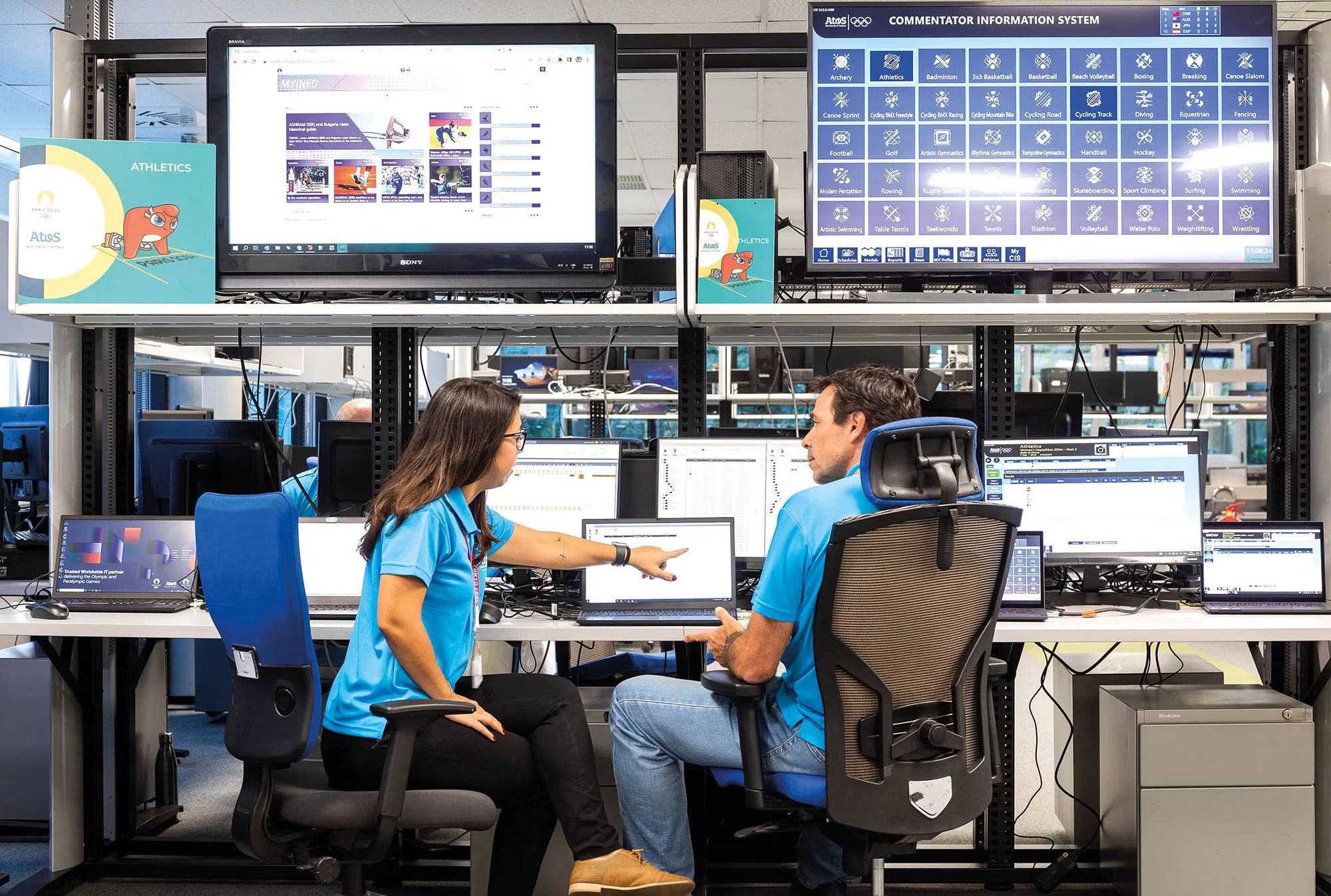
Route planning for athletes and delegations requires precise coordination to avoid delays and ensure all participants arrive on time for their respective events. For this, Paris 2024 has implemented an autonomous shuttle system: the UrbanLoop.
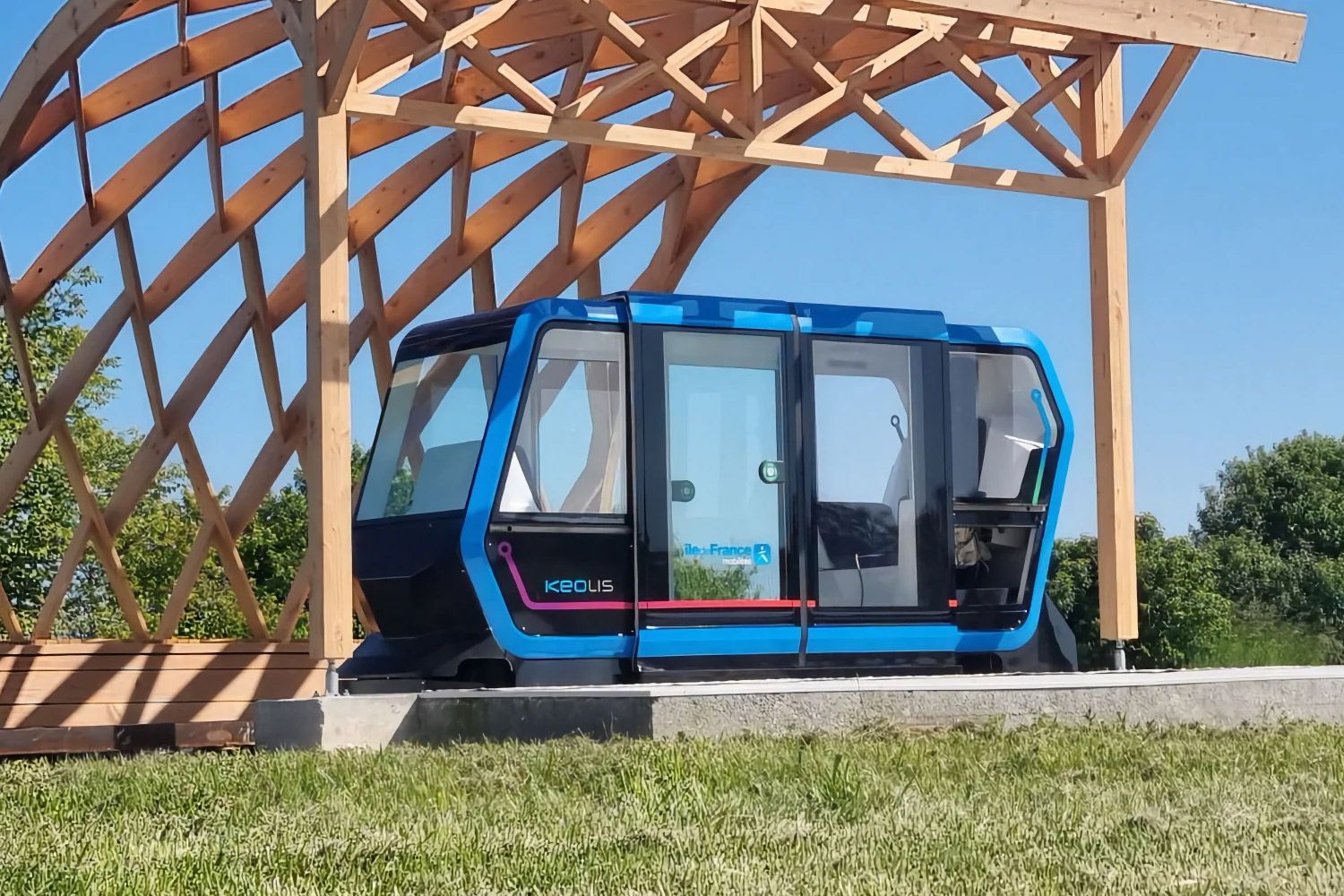
AI helps improve the energy efficiency of the UrbanLoop shuttles. IoT sensors and machine learning systems are deployed to monitor and optimize the energy consumption of vehicles used during the Games.
Keolis, the operator of UrbanLoop, announces a cost per kilometer of less than €0.01.
Ticket sales have also been a significant focus in the communication around the Olympics in recent months. The pricing method, sometimes considered prohibitive, has been a major challenge, requiring precise demand and price management to maximize revenue while ensuring accessibility. AI plays a key role in this area through predictive analysis. It can forecast demand trends and adjust prices in real time. For example, dynamic pricing algorithms modify ticket prices based on demand, events, and previous consumer purchase behaviors.
Personalizing the spectator experience and immersing them in the Games are other areas where AI and data play a crucial role.
Paris 2024 has made an official app available to spectators. It allows users to receive personalized recommendations based on preferences and behavior.
To offer a truly immersive experience, various tracking and analysis technologies have been deployed.
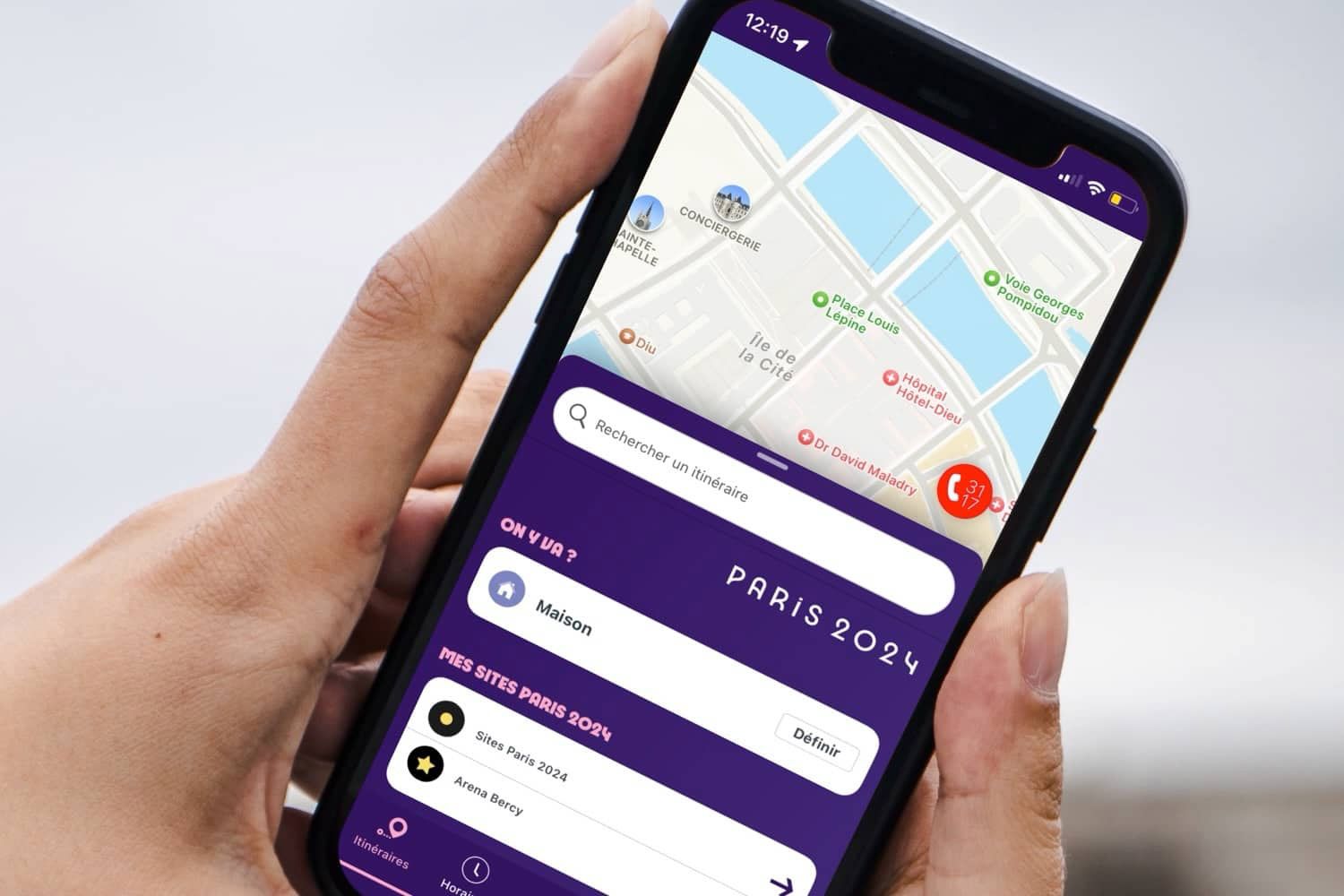
One of the most impressive advancements is real-time athlete performance tracking. The 3D Athlete Tracking (3DAT) technology developed by Intel is used to analyze and broadcast athletes' movements with unmatched precision. Using ultra-HD cameras and advanced algorithms, 3DAT tracks and analyzes movements in three dimensions, providing detailed data on speed, acceleration, and biomechanics of the athletes.
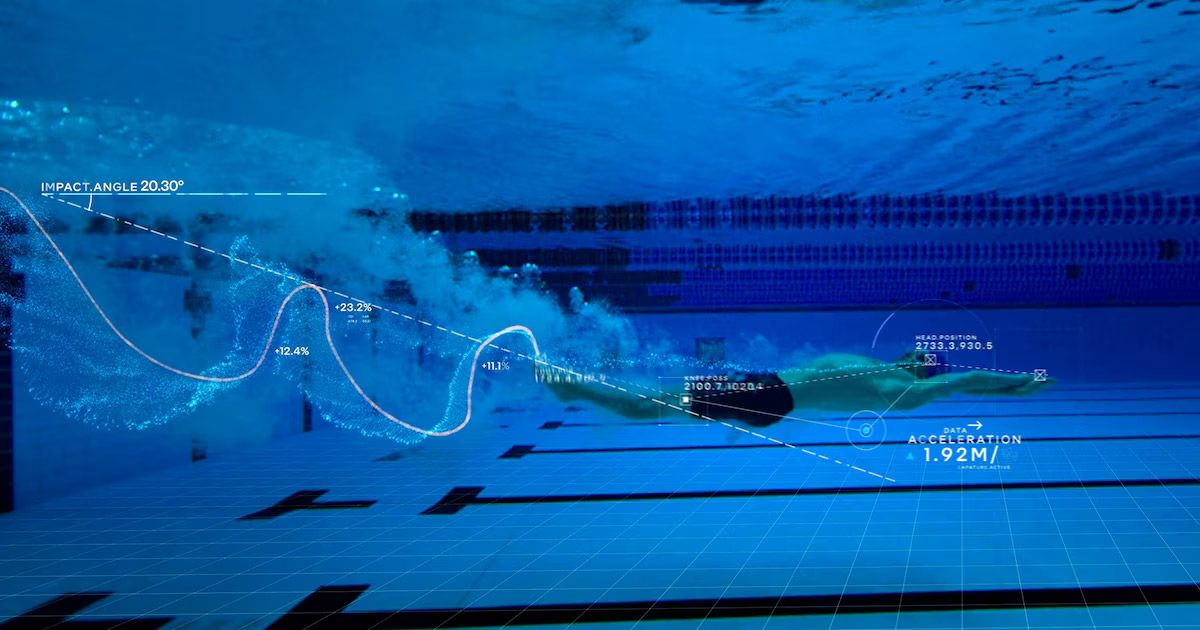
This technology is not limited to stadiums. It is also used in sports such as swimming and athletics, where viewers can see visual representations of athletes' performances, enhancing their understanding and appreciation of sporting events.
In partnership with OMEGA, the Olympic Broadcasting Service (OBS) uses AI to offer faster and more relevant data during the Games. For example, intelligent strobe analysis applied to diving, athletics, and artistic gymnastics allows spectators to better understand athletes' movements and biomechanics.
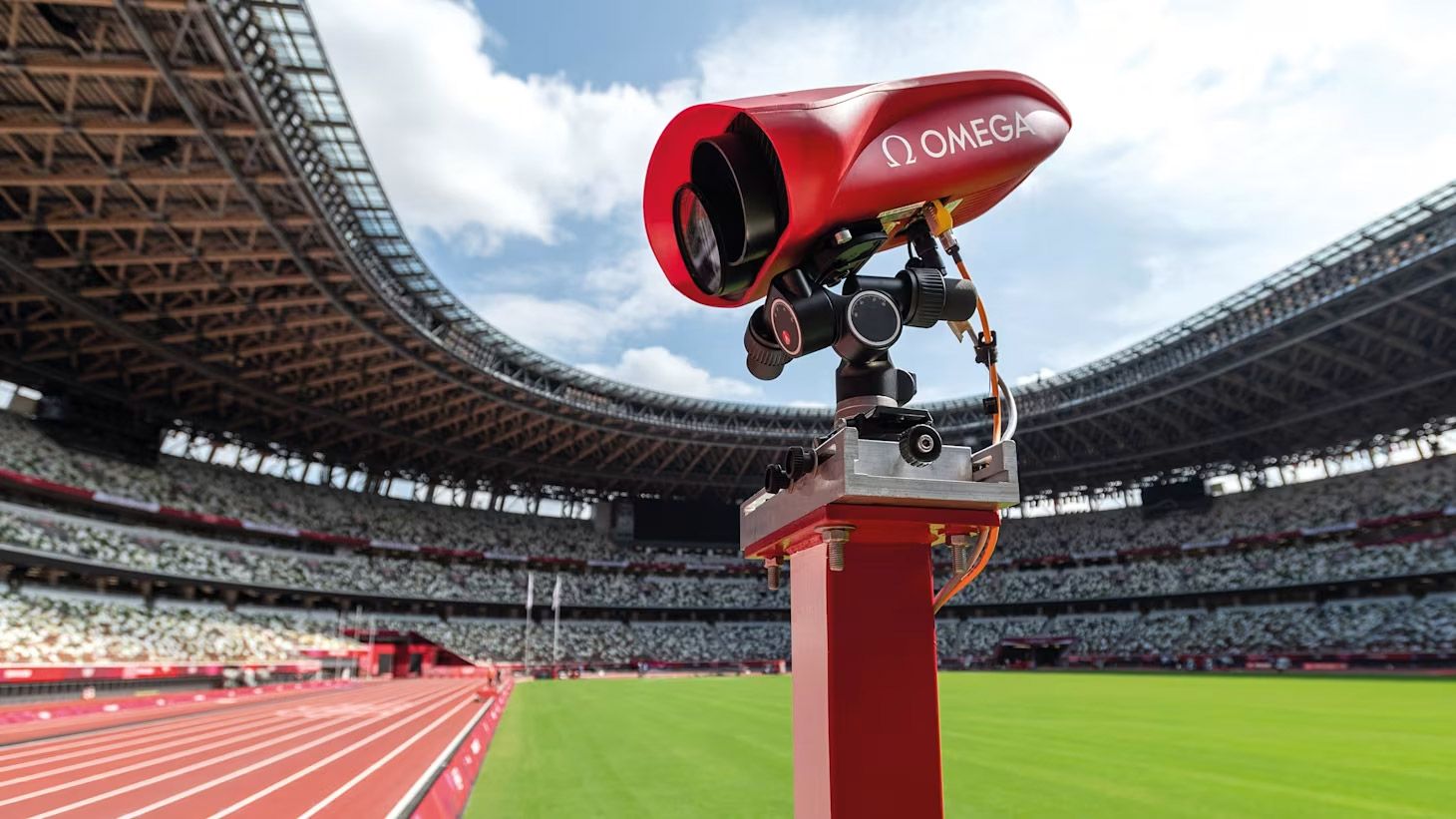
AI-based motion tracking technology helps commentators and spectators follow athletes' positions in disciplines like canoe sprint, marathon, race walking, road cycling, mountain biking, open water swimming, rowing, sailing, and triathlon.
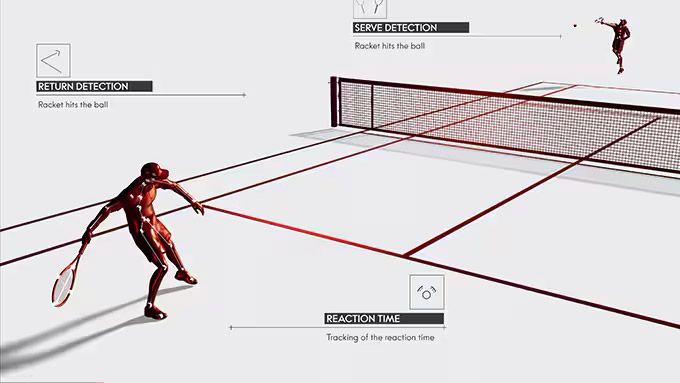
Augmented reality also plays a key role in enhancing TV broadcasts of the Paris 2024 Olympics. Broadcasters, in collaboration with technology partners like Intel and Alibaba, use augmented reality to overlay real-time data on television images. For example, performance statistics, world record comparisons, and contextual explanations are displayed on the screen, providing viewers with an extra layer of information and engagement.
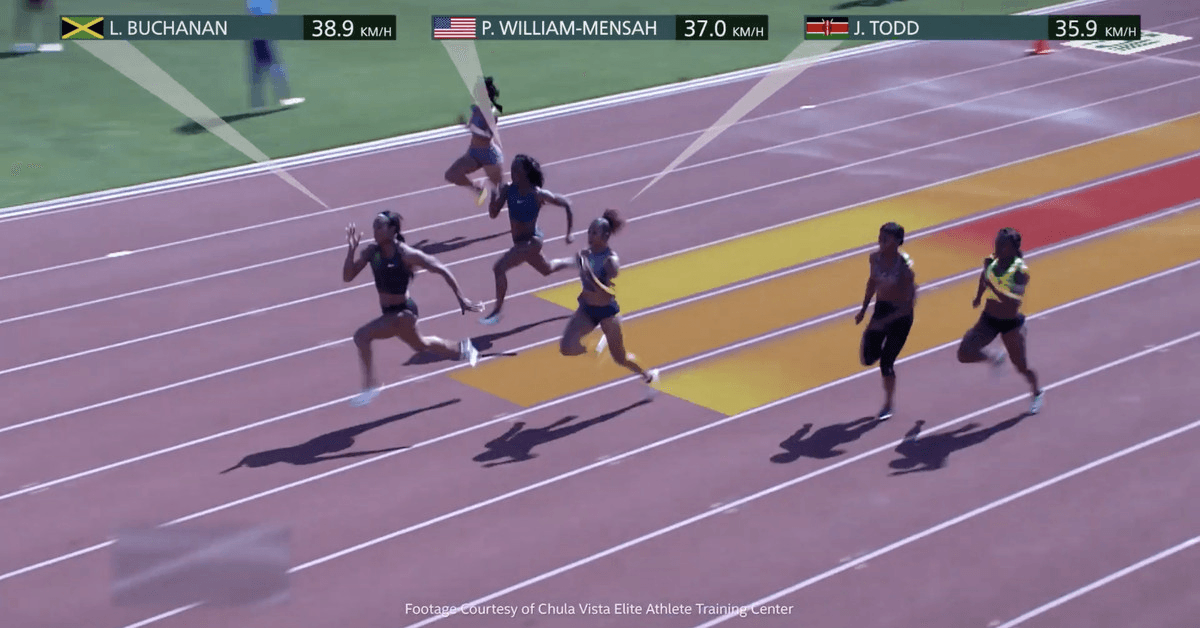
Multi-camera replay systems, using high-quality AI re-enactments, create three-dimensional views and additional camera angles for 21 sports and disciplines.
Another major innovation is the introduction of live 8K broadcasting. Intel, using its Xeon processors, offers 8K broadcasting with minimal latency, providing viewers with unprecedented image quality. This technology transmits ultra-high-resolution video streams, capturing every detail with exceptional clarity. 8K broadcasting sets a new standard for future sporting events, demonstrating the potential of technology to offer immersive and captivating viewing experiences.
AI is also used to automate the generation of highlights from competitions. The Automatic Highlights Generation system, based on the Intel Geti platform, can automatically compile key moments from 14 sports and disciplines according to broadcasters' preferences. This automation allows creating personalized and engaging content faster than ever, offering viewers instant summaries of the best performances and memorable moments of the Games.
Security and risk management are top priorities for the Olympics, involving robust measures to ensure the safety of athletes, spectators, and staff. Innovations in AI and Big Data play a crucial role in these areas, providing advanced solutions to prevent and respond to incidents.
Intelligent video surveillance is an essential tool for maintaining security during large events like the Olympics. At Paris 2024, AI-based surveillance systems have been deployed to detect abnormal behaviors and potentially dangerous situations in real time. These systems use machine learning algorithms to analyze images from surveillance cameras and identify anomalies that may indicate a security risk.
Samsung also contributes by equipping all boats used during the opening ceremony with Galaxy S24 devices. These allow live streaming of the boats and serve more of a communication role than surveillance.
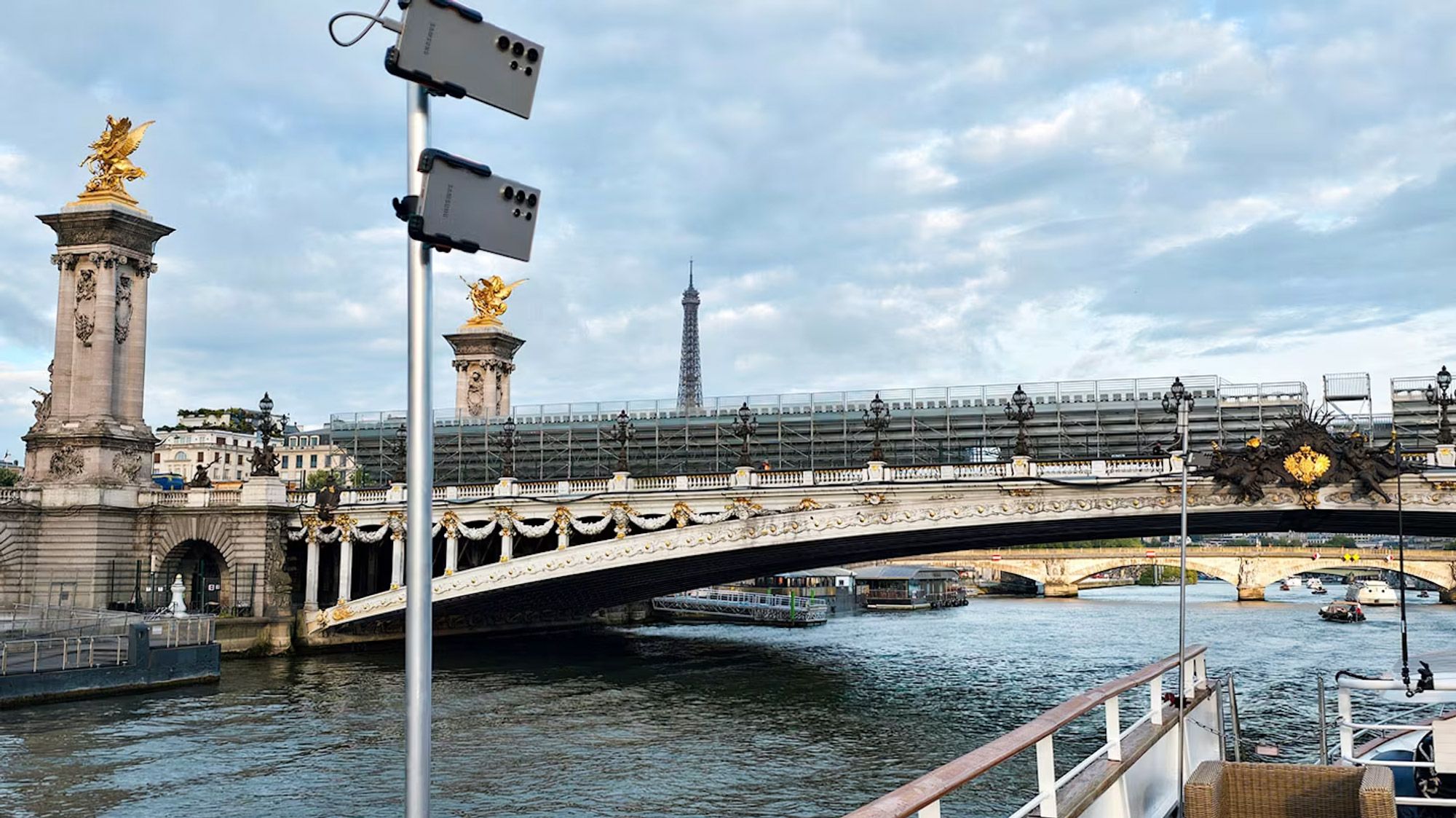
Predictive analysis is another key application of AI in managing Olympic security. By using historical and real-time data, predictive models can anticipate risks and incidents before they occur. For example, data on spectator flows, weather conditions, and past incidents can be analyzed to identify high-risk areas and times.
An AI-powered surveillance system is also used to protect athletes from online abuse by monitoring social media accounts and flagging abusive messages before athletes see them. This system, developed by the IOC, can monitor thousands of accounts on major social media platforms and detect threats in real time. Any identified threat is immediately reported to the relevant platforms for quick intervention.
Additionally, AI is used to enhance the physical security of Olympic sites. For example, IoT sensors and machine learning algorithms can be deployed to monitor infrastructure integrity and detect signs of failure or sabotage. These technologies ensure that facilities remain safe and functional throughout the Games.
The 2024 Olympics also provide an opportunity for the police to test VSA (algorithmic video surveillance), a technology that has been the subject of much controversy, particularly for the threat it poses to privacy. Intelligent cameras, fixed or placed on National Police drones, can detect abandoned objects, unusual crowd movements, or suspicious behavior. In case of potential incident detection, authorities will be immediately alerted for rapid intervention.
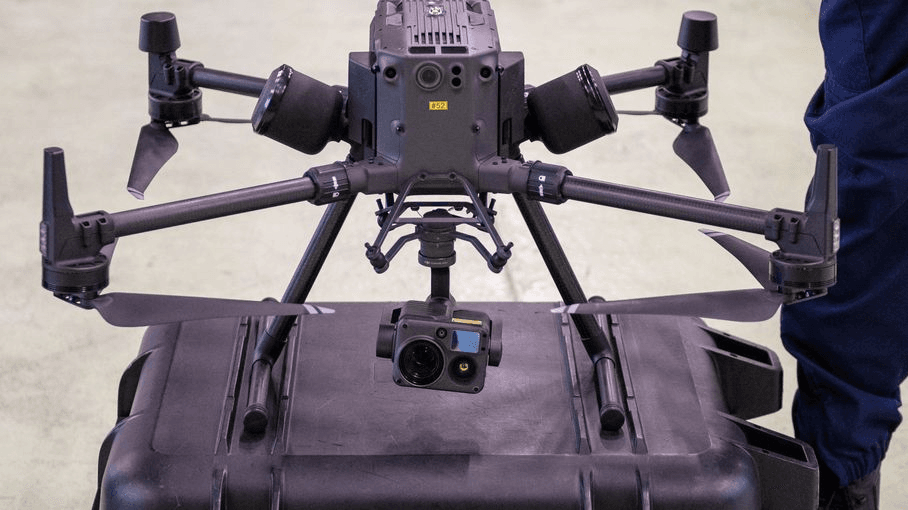
The Paris 2024 Olympics have placed sustainability and environmental impact management at the heart of their organization. For this, AI and data are once again leveraged.
One of the major challenges of organizing the Olympics is the efficient management of energy consumption. At Paris 2024, IoT systems and machine learning algorithms implemented by Intel and Atos are used to monitor and optimize energy consumption in Olympic venues. These technologies collect real-time data on energy use and make informed decisions to reduce unnecessary consumption. Electricity production is ensured by six wind farms and two photovoltaic parks. Additionally, many buildings have been equipped with photovoltaic panels, including the aquatic center, which is covered with 4,600 m² of solar panels.
Waste management is another area where AI and Big Data provide innovative solutions for the Paris 2024 Olympics. Connected bins equipped with IoT sensors have been deployed to monitor fill levels in real time and optimize waste collection routes.
Moreover, analyzing data on the types and quantities of waste generated will enable strategies to reduce waste at the source and promote recycling. Organizers can identify major waste production points and implement specific measures to reduce them, contributing to a more environmentally friendly event.
Sustainability initiatives are not limited to energy and waste management. Paris 2024 organizers have also implemented programs to promote the use of public transport and soft mobility modes like cycling and walking, reducing carbon emissions associated with spectator and participant travel.
Other initiatives include the manufacturing of the 11,000 folding seats at the Arena Porte de la Chapelle and the Olympic aquatic center in Saint-Denis from recycled plastic at the Aubervilliers factory, just a few kilometers away.

The Paris 2024 Olympics embody a true technological revolution through the advanced integration of AI and Big Data in their organization and management. From transportation logistics to personalized spectator experiences, through cutting-edge technologies for TV broadcasts and innovative security measures, every aspect of the Games is optimized to offer an exceptional experience.
Paris 2024 not only highlights athletic prowess but also serves as a platform to demonstrate how AI and Big Data can create a more efficient, safe, and sustainable future for global sporting events. The technological legacy left by Paris 2024 will undoubtedly inspire future editions of the Olympics, setting new standards for innovation and sustainability in sports.